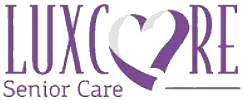As seniors age, their oral health becomes increasingly important to maintain overall well-being. However, some seniors may face challenges in taking care of their oral hygiene independently. Good oral hygiene habits can help prevent toothaches, tooth decay, gum disease, and tooth loss, allowing seniors to maintain a healthy mouth and enjoy food. In this blog, we will explore essential tips for senior oral care, including brushing and flossing techniques, identifying oral health changes, regular dental checkups, managing dry mouth, and adopting healthy habits.
Let’s see these tips in detail:
Brush and Floss Daily:

Brushing and flossing are crucial for removing dental plaque, a sticky film of bacteria that can lead to tooth decay and gum disease. Here’s how to maintain proper oral hygiene:
- Brush your teeth with fluoride toothpaste twice a day, ideally after breakfast and before bed. Use a soft-bristled toothbrush and gentle circular motions
- Floss between your teeth daily. If traditional flossing is challenging, ask your dentist about alternative tools like special brushes or picks [1].
- Rinse with an antiseptic mouthwash once or twice a day to reduce bacteria that cause plaque and gum disease [3].
Watch For Changes In Your Mouth:
As seniors are at an increased risk of oral cancer, it’s essential to be vigilant for any changes in the mouth. If you notice any of the following symptoms persisting for more than two weeks, seek medical attention:
- Uncomfortable or sore spots in your mouth, lips, or throat.
- Lumps or thick areas in your mouth, lips, or throat.
- White or red patches in your mouth.
- Difficulty chewing, swallowing, or moving your jaw or tongue.
- Swelling in your jaw.
- Pain in one ear without hearing loss [1].
- Numbness in your tongue or mouth.
Regular Dental Checkups and Cleanings:

Maintaining regular visits to your dentist is vital for senior oral care. While the frequency of dental visits may vary from person to person, consult with your dentist about the recommended interval for checkups and cleanings. Regular dental visits allow for early detection of oral health issues and a professional cleaning to remove plaque and tartar buildup [1][2].
Managing Dry Mouth:
A dry mouth, characterized by insufficient saliva production, can lead to difficulties in eating, swallowing, and talking, as well as tooth decay and infections. If you experience dry mouth, consult your doctor or dentist for guidance. They may recommend:

- Staying hydrated by drinking water regularly.
- Using over-the-counter saliva substitutes or oral moisturizers.
- Chewing sugarless gum or sucking on sugarless candies to stimulate saliva flow.
- Avoiding alcohol, tobacco, and caffeine, as they can contribute to dry mouth [1][3].
Caregiver’s Support
Caregivers play a crucial role in assisting older adults who may face challenges in maintaining their oral health. They provide essential support and guidance to ensure proper oral hygiene routines are followed, which can have a significant impact on overall oral health. According to the Canadian Dental Association and the National Institute for Dental and Craniofacial Research, caregivers can implement various strategies to help seniors with their oral care.
Firstly, caregivers can adapt oral hygiene routines to meet the individual needs of the person they are assisting. Some seniors may have difficulty using a traditional toothbrush, so caregivers can explore alternatives like powered toothbrushes [1]. Additionally, for individuals with swallowing problems or difficulty rinsing, using a toothbrush moistened with water can be a suitable option. Caregivers can also assist with cleaning between teeth by utilizing interdental cleaners such as flossers, small brushes, water flossers, or wooden plaque removers [1].
Implementing a “tell-show-do” approach can be beneficial when helping seniors with their oral care. Caregivers can explain each step before performing it, ensuring the person understands what to expect. Preparing the work area, having all necessary oral care items within easy reach, and draping a towel over the person’s chest can enhance comfort and convenience during the oral care routine [1]. Washing hands and wearing disposable gloves before starting the oral care routine is essential for maintaining hygiene standards.
Caregivers should be observant of any signs of pain or changes in diet preferences that could indicate a dental issue and prompt a visit to the dentist [3]. They can break down oral care instructions into simple steps and demonstrate the brushing technique to ensure proper understanding and compliance [3]. Additionally, caregivers can explore financial aid programs and assistance offered by dental societies to help older adults with limited income access affordable dental care [2]
New Medical Devices and Technologies:
As technology advances, new medical devices and technologies have emerged to aid in senior oral care. Some notable advancements include:
Electric or Powered Toothbrushes: Electric toothbrushes with rotating or oscillating brush heads have proven to be more effective in removing plaque compared to manual brushing. These devices can be particularly beneficial for seniors who may have difficulty maneuvering a manual toothbrush [4].
Water Flossers: Water flossers, also known as oral irrigators, use a stream of water to remove plaque and debris between teeth and along the gumline. This technology offers an alternative to traditional flossing and can be easier for seniors with limited dexterity or sensitive gums [4].

Caring for a senior’s oral health requires patience, adaptability, and understanding. By implementing the suggestions for senior oral care, you can make a significant difference in their overall well-being. Additionally, exploring new medical devices and technologies, such as powered toothbrushes and water flossers, can further enhance oral care for seniors. Remember, regular dental visits remain essential for maintaining optimal oral health in our beloved seniors.


